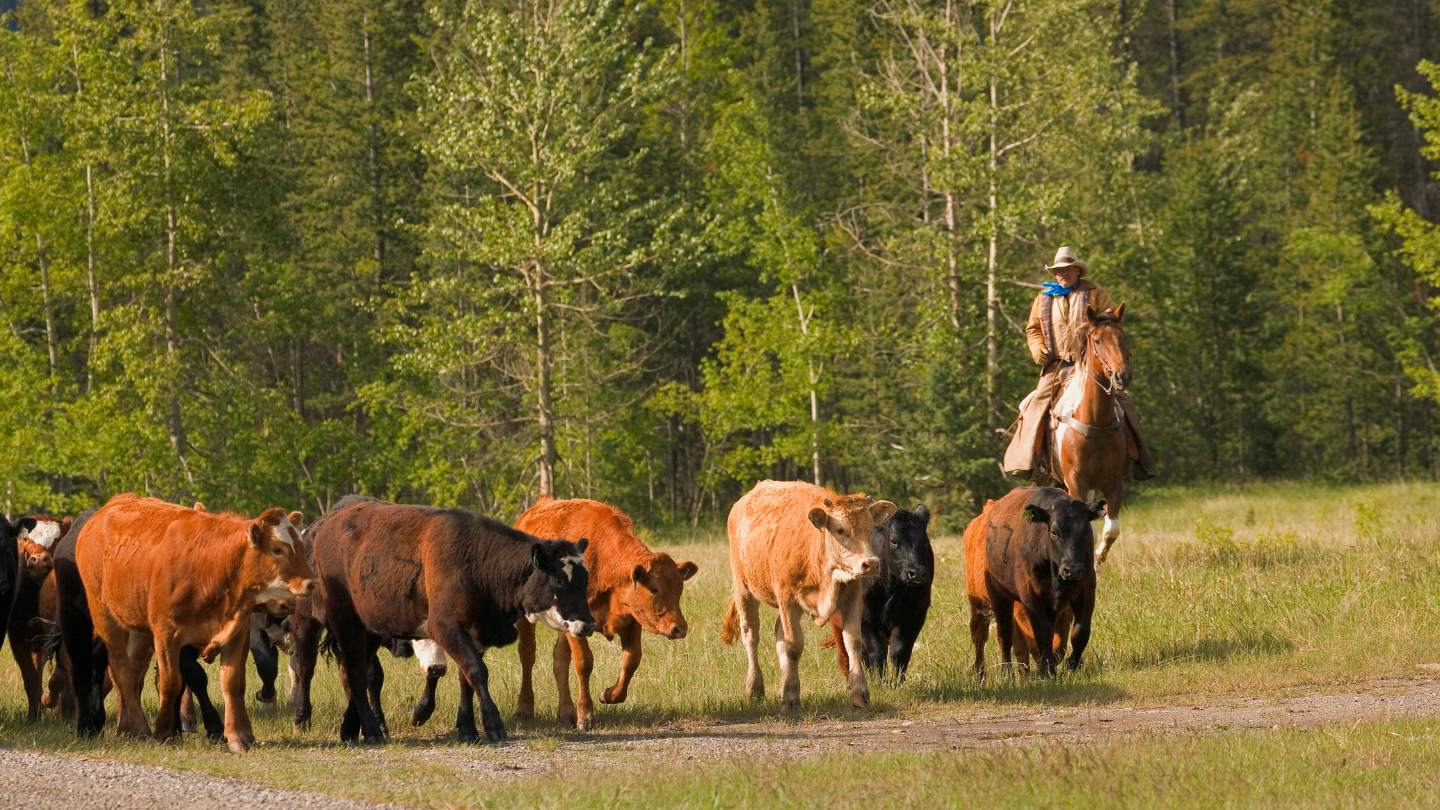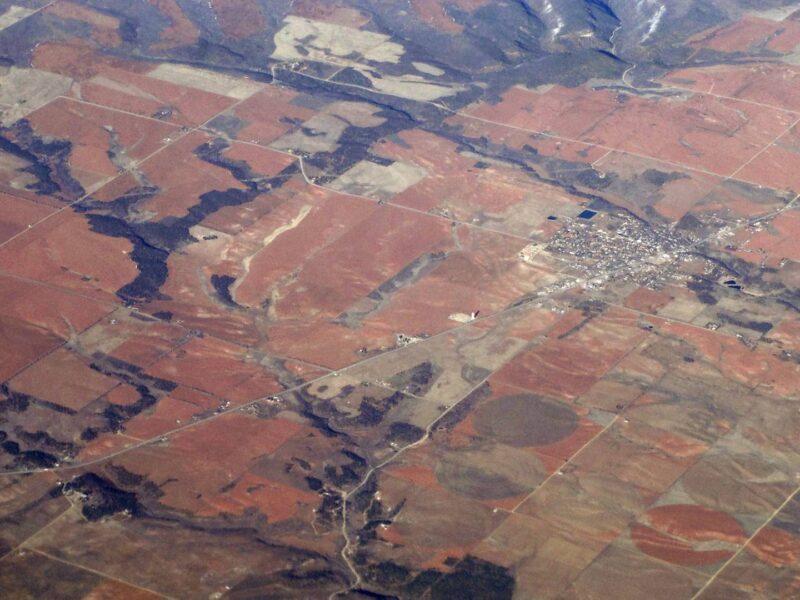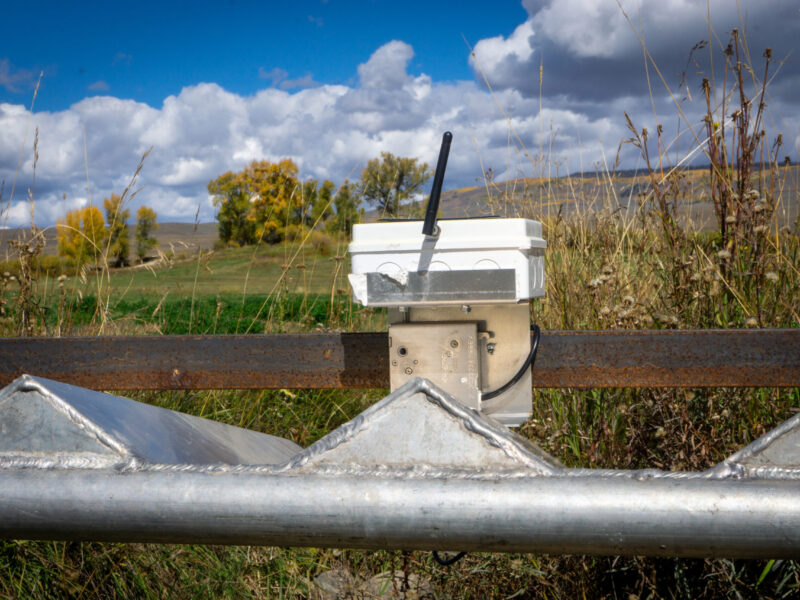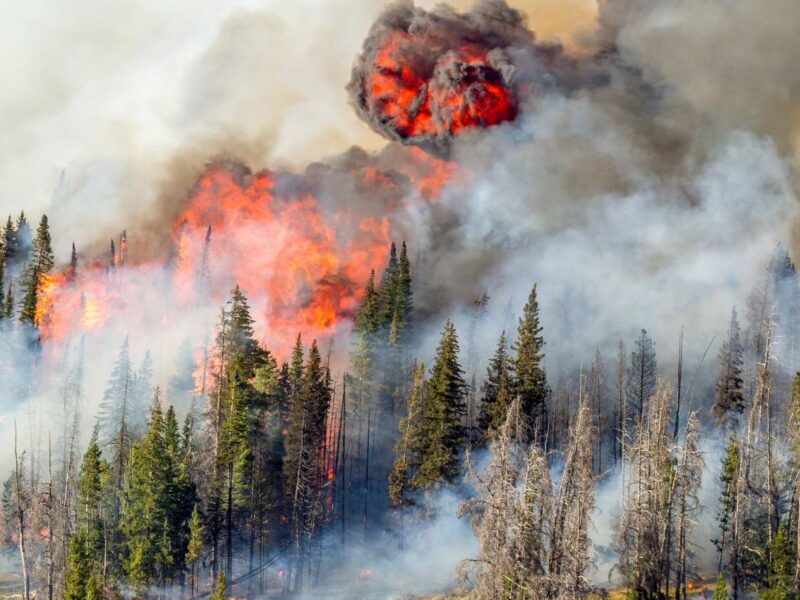More than $22 million in USDA funds are coming to help livestock producers across five Western states remain economically viable and steward habitat in predator rich environments, thanks to two Regional Conservation Partnership Program (RCPP) grants awarded to a consortium led by Western Landowners Alliance and Heart of the Rockies Initiative. The RCPP is a partner-driven approach to conservation administered by the USDA Natural Resource Conservation Service (NRCS) that funds solutions to natural resource challenges on agricultural lands.
About $16.5 million will go to the “Stewarding the Working Wild” project in Montana, Oregon, and Colorado, led by Heart of the Rockies Initiative (HRI), in close partnership with Western Landowners Alliance (WLA). The project will use a holistic approach to incentivize producers to implement solutions that benefit land, livestock, and wildlife.
Over $6.5 Million will go to the “Grazing Management and Non-Lethal Predator Risk Mitigation” project in New Mexico and Arizona led by WLA. By providing technical assistance and cost-share finance for multi-benefit practices like range riders, carcass composting facilities, fencing and related technologies, the partners expect improvements in range and herd health and reduction in conflict between livestock and carnivores, alongside wildlife habitat conservation.
Multiple benefits from conflict reduction tools
“These resources mean that farmers and ranchers who are on the frontlines sharing landscapes with expanding populations of wolves and grizzly bears in the West will have more of what they need to continue or initiate practices that help reduce conflict,” said HRI director Gary Burnett. “The best part is that all the tools we’ll be supporting also help ranchers build resilience to other threats they face, like drought and invasive species, while also benefiting habitat connectivity.”
The awards are part of an unprecedented $1 billion investment in the RCPP program to advance partner-driven solutions to conservation on agricultural land through 81 projects across the nation. RCPP leverages a voluntary approach to conservation that expands the reach of conservation efforts and natural resource challenges on agricultural lands through public-private partnerships.
“Landowner-led, collaborative conservation continues to be an effective tool for addressing challenges like gray wolf and grizzly bear recovery in the West,” said Erik Kalsta, Working Wild Challenge program director with WLA and a rancher in the Big Hole Valley of Montana. “Livestock producers have an opportunity to guide design and test the solutions. This increases our confidence that the practices can work, be practical and are largely cost-effective.”
Support for Colorado, where wolves are coming soon
“In Colorado, where elk, black bears, and mountain lions already create challenges for livestock operations that also face immense development pressure, gray wolves are being reintroduced this month. Cost sharing for these conflict prevention tools is quite timely. I hope this creates opportunities for ranchers to reduce conflict before wolf depredations become a chronic problem,” said Working Wild Challenge program manager Matt Collins, who lives in central Colorado. “Ranchers here are worried. Now we have legitimate resources available to help them prepare and that could go a long way.”
It is expected that about $5 million, $3 million and $2 million will be available for cost sharing tools in Montana, Oregon, and Colorado respectively, though the exact amounts of funding available may vary slightly as partnership agreements between USDA and the consortium still need to be worked out.
Mexican gray wolf help, too
The project in Arizona and New Mexico is focused on the Mexican gray wolf recovery area. There, frustrations between ranchers, the US Forest Service, and wildlife advocates have been simmering for years, as the rugged country and federally-protected status of the Mexican gray wolf contributes to significant conflict. RCPP funds, to the tune of up to $3 million for each state, will help pay for range riders to spend significantly more time with the livestock on the open range in this area. While it can be done via horseback, on foot or by ATV, the overarching goal for range riding is to monitor livestock-predator interactions and manage livestock to minimize conflicts and improve range utilization.
“Ranchers here in western New Mexico and eastern Arizona have been bearing the overwhelming majority of the financial burden for Mexican wolf reintroduction for over 25 years,” said Nelson Shirley, owner-operator of Spur Lake Cattle Co. “While there is some compensation for confirmed wolf kills of our livestock, ranchers and their families are up at night protecting their cattle, rescuing wounded calves and chasing off depredating wolves at largely their own expense. Western Landowners Alliance has really helped to change this picture. With this assistance from RCPP funding, ranch families will now be financially able to pay a range rider to help protect their livestock.”
Neighboring up is the true way of the West
For both RCPP projects, producers will need to apply for cost-share under these agreements through their local NRCS office, but the RCPP makes applications highly likely to be funded. While cost sharing opportunities are still some months out, interested producers can contact HRI or WLA to discuss possibilities and receive assistance with applications.
Funding for these RCPP projects will support the biologically diverse working lands of the West that produce food and fiber; sustain both rural and urban communities; enhance ecosystem services including clean water, biodiversity, and carbon storage; and maintain connected lands that provide essential wildlife habitat and migratory corridors.
“Ranchers across the West are faced with complex resource issues,” said Jim Stone, owner-operator of Rolling Stone Ranch near Ovando, Montana. “Our ability to ‘neighbor up’ with a host of partners will give us all a variety of tools and make us more resilient. I am very grateful for this visionary approach.”





